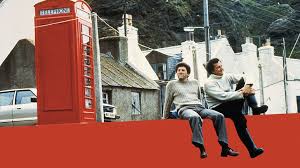Introduction: The Value of Local Scenes
In cities and towns across the world, Local Scenes have become the heartbeat of cultural identity. They represent authentic expressions of art, music, food, and community gatherings. Local Scene go beyond mainstream entertainment to highlight the voices, traditions, and creativity of everyday people.

Whether through music nights in small cafés, art shows in neighborhood galleries, or cultural festivals in town squares, Local Scene provide platforms for communities to connect. This article explores the history, importance, and future of Local Scene, and how they continue to shape the cultural and social fabric of societies.
Defining Local Scenes
Authentic Cultural Expressions
Local Scene encompass grassroots-level artistic and cultural activities. They are not defined by large institutions or commercial industries but by the creativity of local communities.
Accessibility and Belonging
Unlike exclusive art spaces, Local Scene invite participation. They create environments where anyone can join, whether as a performer, artist, or audience member.
Historical Background of Local Scenes
Folk Traditions and Street Culture
For centuries, communities have expressed identity through folk music, street performance, and local festivals. These were the earliest Local Scene, where culture was preserved and passed down.
From Underground to Recognized
In modern times, many Local Scene began as underground movements—punk rock in the 1970s, hip-hop in the 1980s, or graffiti art in urban spaces. Over time, these scenes shaped mainstream culture.
Why Local Scenes Matter
Preserving Cultural Identity
Local Scene protect traditions that might otherwise fade in the face of globalization. They showcase the uniqueness of communities through language, art, and ritual.
Creating Social Bonds
Events within Local Scene bring neighbors together. Shared experiences in concerts, film screenings, or festivals create a sense of belonging.
Encouraging Economic Activity
Local Scene attract visitors, supporting nearby restaurants, cafés, and shops. Artists and artisans also benefit from increased exposure.
Types of Local Scenes
1. Music and Performance
From open-mic nights to jazz sessions, music-driven Local Scene create spaces for emerging talent and cultural expression.
2. Art and Street Culture
Murals, exhibitions, and street performances bring visual arts directly into neighborhoods, showcasing community stories.
3. Film and Multimedia Gatherings
Outdoor screenings and indie film festivals offer access to diverse cinematic experiences while sparking conversation.
4. Food and Cultural Festivals
Markets and festivals celebrate local cuisine and cultural traditions, creating immersive community experiences.
5. Community-Driven Events
Workshops, charity fairs, and grassroots gatherings empower residents to actively shape their local culture.
Local Scenes as a Driver of Tourism
Authentic Travel Experiences
Tourists increasingly seek real cultural engagement rather than commercial attractions. Local Scene provide authentic opportunities to connect with local people and traditions.
City Branding
Cities with vibrant Local Scene—such as Berlin’s street art, New Orleans’ jazz, or Havana’s dance culture—become globally recognized destinations.
Case Study: Ariantze Side Walk and Local Scenes
Ariantze Side Walk in Georgetown is an example of how businesses contribute to Local Scene. By hosting film nights, live music, and art showcases, the café has become more than a dining space—it is a cultural hub. Its success demonstrates how Local Scene can flourish when supported by small businesses that value creativity and community.
Challenges Facing Local Scenes
Funding and Sustainability
Local artists and organizers often struggle with financial support. Without adequate funding, many events remain limited in scope.
Threats of Commercialization
As Local Scene gain popularity, there is a risk of losing authenticity when corporate interests dominate. Maintaining grassroots values is essential.
Urban Development Pressures
Gentrification can displace communities that create Local Scene. Rising rents often push artists and small venues out of neighborhoods they helped shape.
The Role of Technology in Local Scenes
Social Media Amplification
Platforms like Instagram, TikTok, and YouTube allow Local Scene to reach global audiences. Viral performances can transform small events into international sensations.
Digital and Hybrid Events
Local Scenes increasingly blend physical gatherings with digital participation, making cultural experiences more accessible.
Economic and Social Impact
Empowering Artists
Local Scenes give artists opportunities to perform, display, and sell their work, launching careers that may grow internationally.
Building Inclusive Communities
They provide platforms for marginalized groups to express their voices and share their culture, contributing to social justice and inclusivity.
Revitalizing Neighborhoods
By attracting visitors and fostering pride, Local Scenes can rejuvenate urban areas that were once overlooked.
The Future of Local Scenes
Expanding Accessibility
Expect more free and low-cost events to ensure inclusivity.
Sustainability and Eco-Friendly Practices
Local festivals and gatherings are adopting environmentally conscious approaches such as zero-waste initiatives.
Integration With Education
Local Scenes will play a growing role in education, inspiring creativity in schools and youth programs.
Conclusion: Celebrating the Spirit of Local Scenes
Local Scenes are vital to cultural life. They represent authenticity, creativity, and human connection in a world increasingly dominated by digital and commercial influences.
From music nights and art exhibitions to food festivals and film screenings, Local Scenes remind us that culture is not only preserved in museums but lived daily in communities. They are the spaces where identities are formed, stories are told, and communities unite.
By supporting Local Scenes, we ensure that creativity and cultural expression remain at the heart of our shared humanity.

